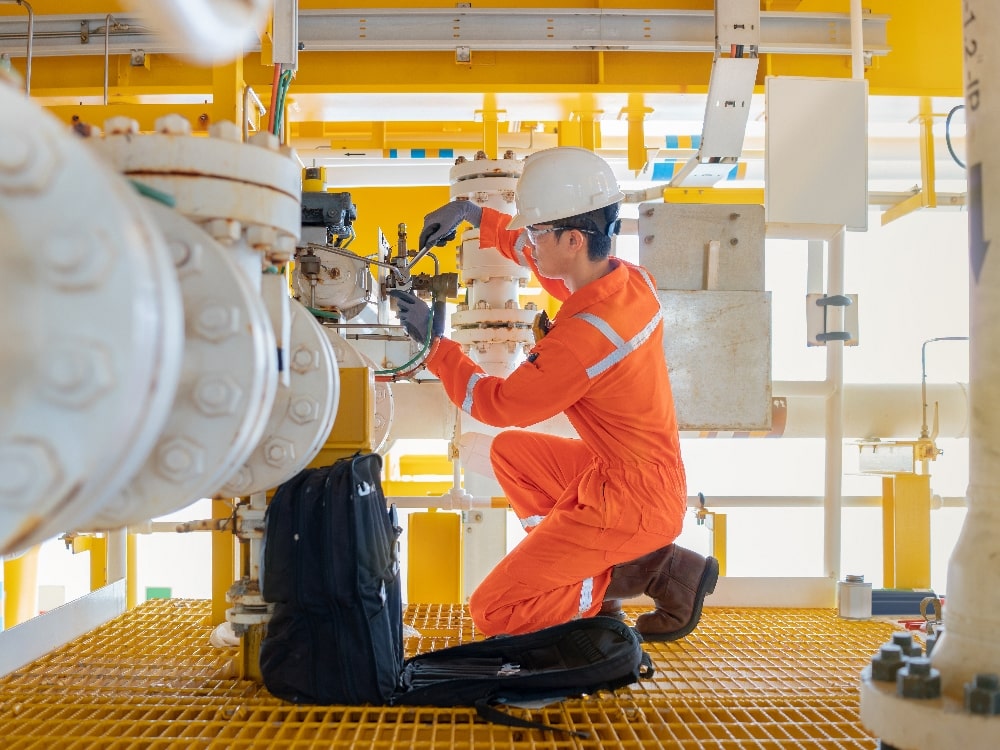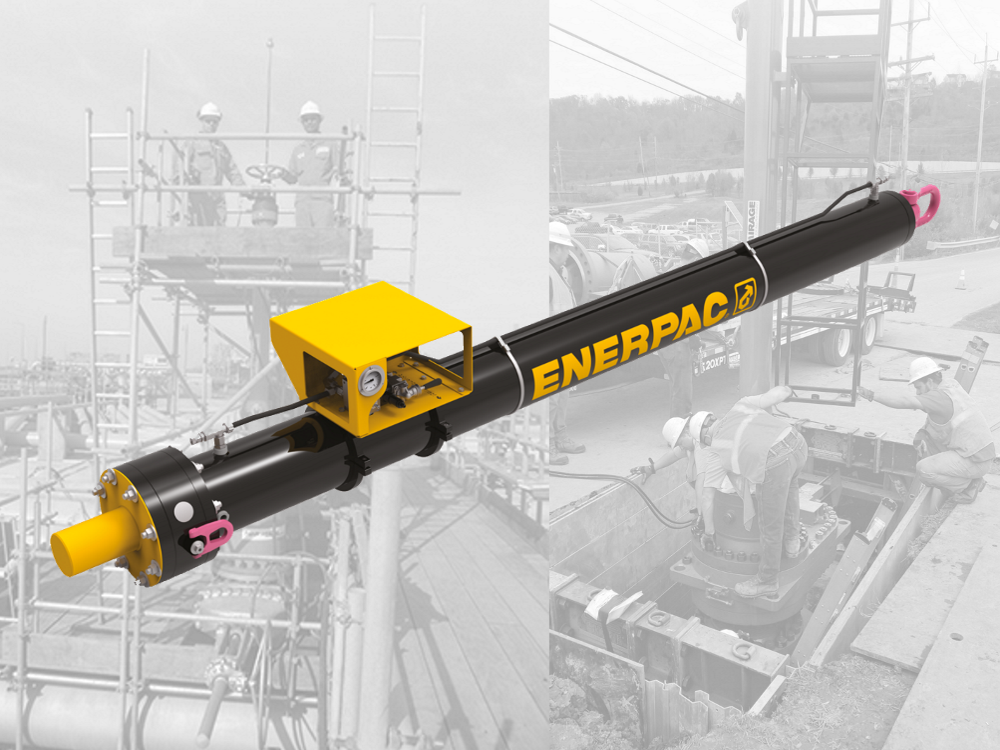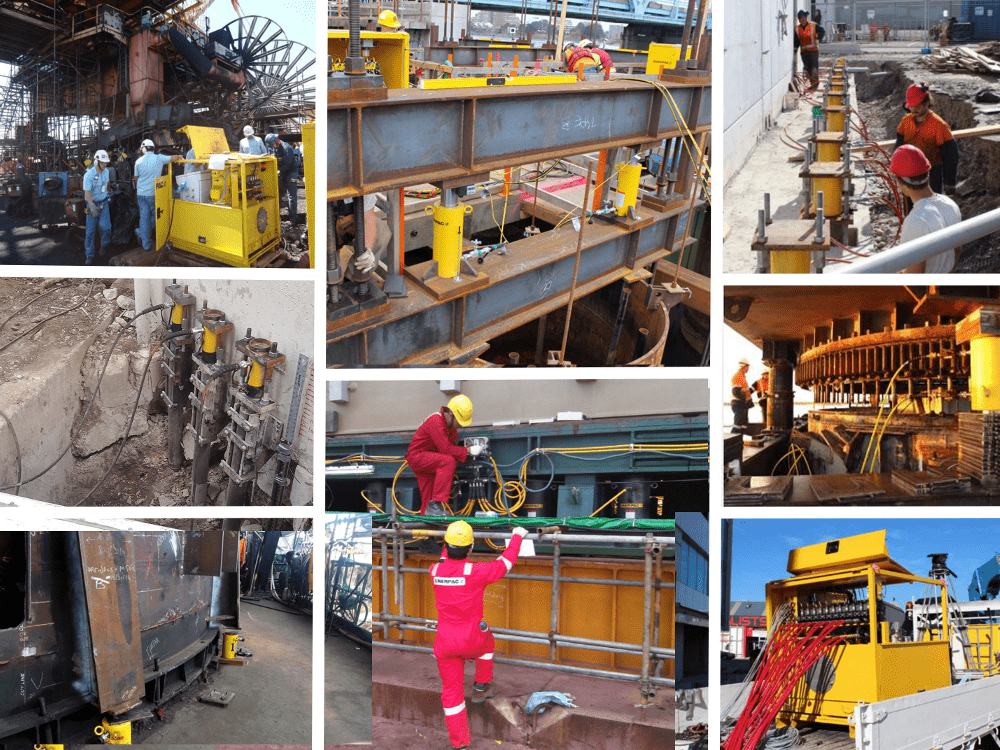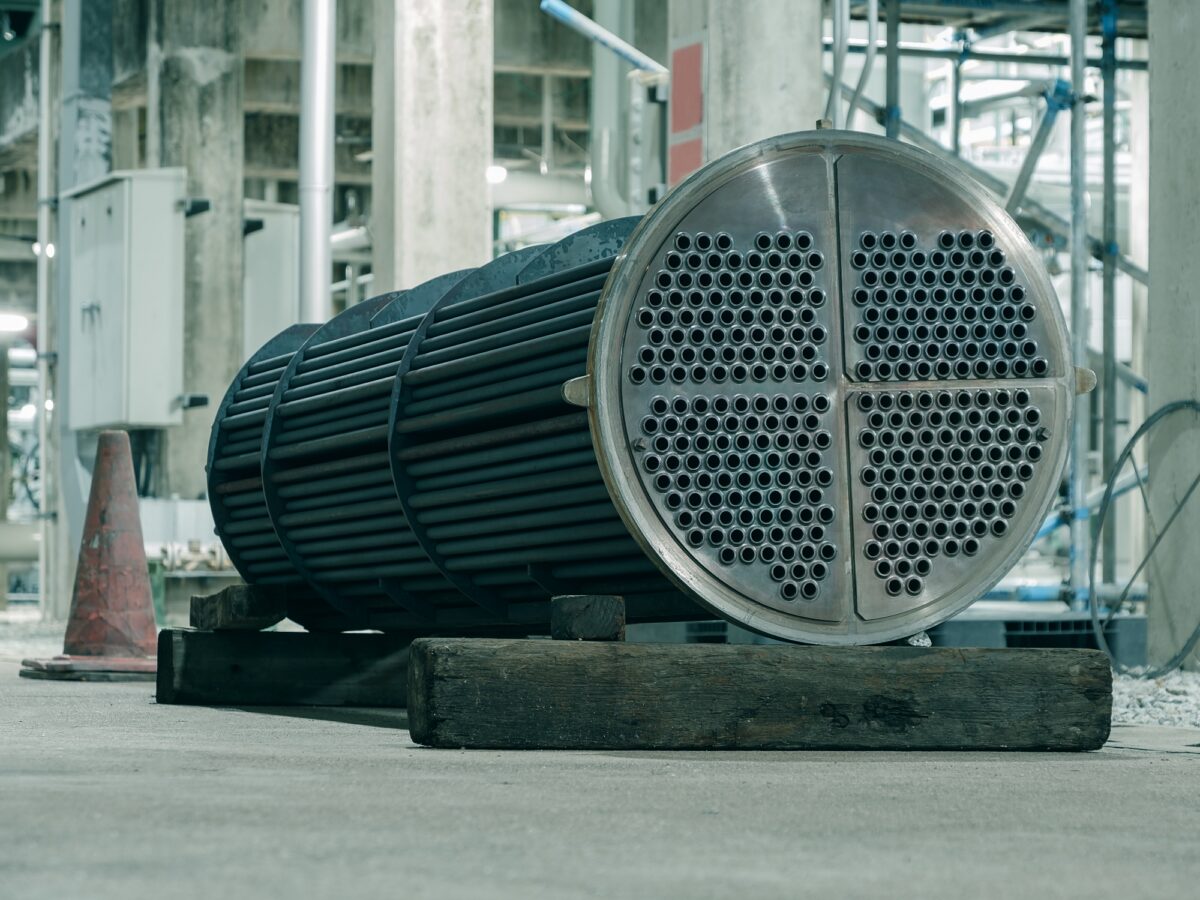Grades of Steel for Oil & Gas Applications
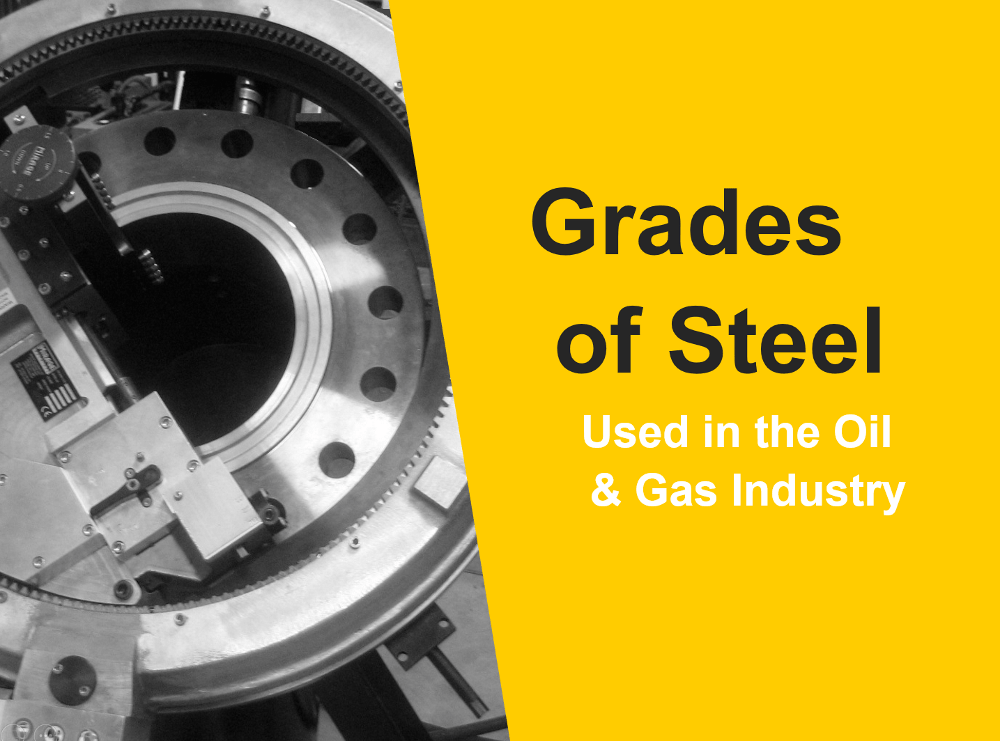
November 23, 2021
0
The different grades of steel used in the oil and gas industry have very specific properties. This means they can withstand the harsh and extreme conditions of each individual application.
The properties of steel can be altered dramatically by adding different proportions of materials such as Chromium, Carbon, Manganese, Nickel, Molybdenum, Titanium, Silicon, Phosphorus, and Sulphur. Hardness, corrosion, oxidation, strength, and the ability to weld are all affected by adding the above materials.
For anyone involved in on-site machining, understanding the different grades of steel and their uses will help you choose the right portable machine tool and select the correct tooling to complete the job right the first time.
Read on to learn about the most common types of steel used in the oil and gas industry.
Stainless Steel
The standard grade of stainless steel you see in everyday household items is also used in the oil and gas industry. Adding at least 10.5% chromium to steel produces a thin layer of oxide on the surface of the steel known as the “passive” layer that prevents surface corrosion. Nickel and Molybdenum may also be added to further enhance corrosion protection.
Oil & Gas Applications for Stainless Steel
- Flowlines (the pipes from the wellhead)
- Structural Components
- Umbilicals (to transfer power, chemicals, communications to and from subsea developments)
- Heat Exchangers (for cooling operations)
- Process Equipment
Duplex Stainless Steel
Duplex stainless steel is very strong. It has high resistance to corrosion, stress, and cracking. Compared to other corrosion-resistant alloys, Duplex uses less Nickel and Molybdenum, making them less prone to price fluctuations and therefore more cost-effective.
Oil & Gas Applications for Duplex Stainless Steel
- Oil Country Tubular Goods (OCTG) – Tubes used in oil and gas production
- Storage Tanks & Pressure Vessels
- Chemical Processing and Refining
Carbon Steel
Carbon Steel is made from Iron Steel with up to 2% of carbon added. Also included are small amounts of Silicon, Manganese, Phosphorus, and Sulphur. The grades of Carbon Steel include low, medium, and high.
Carbon Steel is incredibly strong, it has high resistance to wear, it can withstand high temperatures, and it is one of the most commonly produced types of steel. Drawbacks include difficulties welding and machining, and risk of corrosion – (however, additives can be added to help control this).
Oil & Gas Applications for Carbon Steel
- Oil Country Tubular Goods (OCTG)
- Flow lines
- Structural Components
- Platforms & Jackets
- Pipelines (high temperature)
Forged Steel
This material is used when applying forging techniques to reshape the metal. Normally this is for components where steel strength heaviness is needed.
Oil & Gas Applications for Forged Steel
- Wellheads & Christmas Trees
- Subsea Equipment
- Valves & Fittings
Engineered Steel
Also known as special bar quality (SBQ) steel, this is commonly used in moving parts and those where stress resistance and a fine surface finish is required. One of the key factors determining the performance of the material is its purity. The fewer the impurities, the more ‘special’ the grade is.
Oil & Gas Applications for Engineered SBQ Steel
- Completion Equipment (used to make the well ready for production)
- Shafts, Bearings
- Drill Bits
Nickel
Adding this to steel increases strength and resistance to corrosion. This includes an improved performance at extreme temperatures.
Oil & Gas Applications for steel containing Nickel
- Wellheads, Christmas Trees
- Subsea Equipment
- Valves & Fittings
- Oil Country Tubular Goods (OCTG)
- Down-hole Equipment & Tools
- Completion Equipment
- LNG & Natural Gas Processing Plants
Chromium Steel
This is used as an additive to produce stainless steel and corrosion-resistant alloys. Grades of Chromium-based steel products range from Cr13 to Cr35.
Oil & Gas Applications for Chromium Steel
- Wellheads, Christmas Trees
- Valves & Fittings
- Oil Country Tubular Goods (OCTG)
- Down-hole Equipment & Tools
- Completion Equipment
- LNG & Natural Gas Processing Plants
Molybdenum Grades of Steel Alloy
Molybdenum provides 3 benefits when added to steel. Not only does it increase strength and improve corrosion resistance, it also has a high melting point – making it suitable for extremely high temperatures.
Oil & Gas Applications for Steel with Molybdenum
- Oil Country Tubular Goods (OCTG)
- Down-hole Tools
- Drill Bits
- Used as Catalyst in Petrochemical Industry
Inconel Alloy
Inconel alloy is a trademarked corrosion-resistant super alloy. These alloys are very difficult to machine and weld and contain up to 70% Nickel and up to 70% Chromium. This makes them suitable for use in high temperature, corrosion and pitting environments, acid applications, exposure to high mechanical stress and seawater. Common grades used in the oil and gas industry are 718, 628, 625,825, and 945. For wellhead applications, Inconel 718 (solid), and Inconel 625 (cladding) are commonly used. Inconel 718 is also used for completion equipment in sour applications.
Oil & Gas Applications for Inconel
- Chemical Processing Equipment
- Components of Gas Turbines,
- Valves
- Completion Equipment in Sour Applications
- Drilling Tools
- MWD / LWD components
- Flare Booms
- Wellhead Components (hangers)
Incoloy
Incoloy alloy is another trademarked alloy that is corrosion resistant but is a more cost-effective alternative to Inconel. These are best suited for sour gas, high chloride, process piping, and aqueous environments, such as seawater and brine.
Incoloy 945 and 945X as the most recently developed alloys and are known to be one of the best corrosion resistance alloys available and used in Oil & Gas Industry only.
Oil & Gas Applications for Incoloy
- Completion Equipment
- Packers
- Drilling Tools
- MWD / LWD Components
- Liquid / Fluids Separators
Monel
Monel is another trademarked corrosion-resistant super alloy. It is a Nickel and Copper-based alloy (60% and 30% respectively) and is used in many applications. Common grades in the oil and gas industry are K500 and 400. Monel K500 is used in completion equipment with high corrosion resistance and higher strength requirements.
Oil & Gas Applications for Monel
- Pumps & Valves
- Heat Exchangers
- Electrical Components
- Down-hole Equipment & tools
Hastelloy
Hastelloy is a corrosion, oxidation, and erosion resistant nickel-molybdenum alloy with high mechanical strength at high temperatures. Petrochemical plants are a major user of Hastelloy.
Oil & Gas Applications for Hastelloy
- Pumps & Valves
- Heat Exchangers
- Pressure Vessels
Machining Equipment for all Grades of Steel
You will see that the properties of the different types of steel can vary considerably. If you intend to machine these metals on-site you will need portable machine tools robust and reliable enough to perform time after time. Enerpac equipment used during plant construction and maintenance include:
Machining
- Flange Facing Machines
- Clamshell Pipe Cutting and Beveling Machines
- Hot Tapping Machines and Line Stop Actuators
- In-Situ Milling Machines
Decommissioning
Other Enerpac Tools
- Hydraulic Torque Wrenches
- Flange Alignment Tools
- Flange Spreaders
- Pipe Isolation Tools
- Heavy Lifting Technologies
